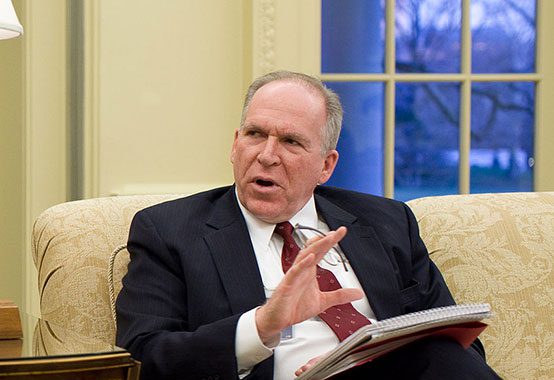CIA Gets Back to Spying

A little more than one year ago Director John Brennan announced a shake-up at CIA that would, inter alia, enhance the eroded capabilities of the Clandestine Service. An earlier move to appoint paramilitary officer Gregory Vogel as deputy director for the agency’s spies signaled to the bureaucracy that shooting and droning had replaced espionage as the elite component at CIA, and there was considerable concern that the agency had to some extent lost its ability to perform traditional tradecraft. While it would be a gross exaggeration to suggest that the agency had abandoned the spy business, by some accounts it has largely given up on unilateral operations and has instead become heavily dependent on often unreliable information shared by friendly intelligence liaison services.
A recent first-person account by Douglas Laux, Left of Boom, describes in some detail new-age spying. The memoir, which has been heavily redacted by CIA censors, describes the role of the spy as foot soldier in combat zones like Syria and Afghanistan. Laux makes the point that many of the current generation of CIA case officers have done little conventional spying, having only worked in war zones where the rules of engagement are quite different than they would be on the cocktail circuit in Paris.
Laux concludes his tale with his frustration in arming rebels in Syria, but his story begins when he arrived in Afghanistan in early 2010. He had a singular advantage over most of his peers in that he was one of the few taught Pashto prior to his assignment. He was sent to a base located in a bleak concrete-block Soviet-era prison and was immediately tasked with developing information on the purveyors of improvised explosive devices that were killing large numbers of American soldiers. He cultivated local tribesmen, but when he met his agents he would wear body armor and be driven to the meetings in an armored vehicle protected by ex-Navy SEAL guards.
Laux’s success, or the lack of it, is difficult to discern from the book due to the extensive redactions, but he notes ruefully how little the military and intelligence agencies knew about Afghanistan or its people. Short tours of duty, as in Vietnam, meant that right from the beginning everyone would be counting down the days until DEROS—date eligible for return from overseas—and those leaving, who might have learned a little of what was going on during their year, would pass the baton to a newbie who would have to begin the process all over again. Laux repeats the joke that the U.S. had not been in the country for 10 years, “We’ve been in Afghanistan one year, ten times.”
 Ignorance of what was happening on the ground and failure to communicate across bureaucratic lines came with a price tag. The military would broadcast the names of Taliban who were wanted without coordinating with CIA. The next day men would show up at CIA bases with allegedly “valuable information” based on the names and demand payment. The agency would pay up, assuming that the knowledge of the names of wanted terrorists itself established the bona fides of the purveyors of the information. For Laux, the confusion exemplified everything that was wrong about the United States effort in Afghanistan, an observation that might serve to enlighten certain presidential candidates even today.
Ignorance of what was happening on the ground and failure to communicate across bureaucratic lines came with a price tag. The military would broadcast the names of Taliban who were wanted without coordinating with CIA. The next day men would show up at CIA bases with allegedly “valuable information” based on the names and demand payment. The agency would pay up, assuming that the knowledge of the names of wanted terrorists itself established the bona fides of the purveyors of the information. For Laux, the confusion exemplified everything that was wrong about the United States effort in Afghanistan, an observation that might serve to enlighten certain presidential candidates even today.
Philip Giraldi, a former CIA officer, is executive director of the Council for the National Interest.
Comments